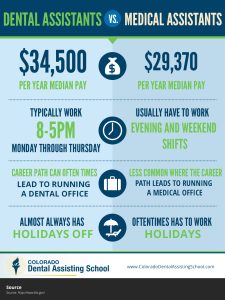Contents
- Creating A Supportive Network
- Preparing Physically And Mentally
- Navigating Medical Care And Appointments
- Setting Up The Perfect Nursery
- Financial Planning And Budgeting
- Baby Registry Must-Haves
- Preparing Siblings And Pets
- Creating A Birth Plan
- Preparing For The Fourth Trimester
- Babyproofing The Home
- Early Parenting Challenges And Solutions
- Postpartum Wellness And Self-Care
- Frequently Asked Questions On What To Do When Expecting A Baby
- Conclusion
Prepare for the arrival of your baby by creating a practical checklist and attending prenatal classes. When expecting a baby, there are several important tasks to complete and educational resources to utilize for a smooth transition into parenthood.
Gather baby essentials, such as clothing, a crib, and diapering supplies, while also considering practical items like a car seat and stroller. Attend prenatal classes to gain knowledge about childbirth, breastfeeding, and newborn care, as well as to connect with other expectant parents.
By completing these tasks and acquiring the necessary knowledge, you can better prepare yourself for the exciting journey of becoming a parent.
Creating A Supportive Network
Discover how to create a strong support network during pregnancy, ensuring you have the help and guidance you need when expecting a baby. Connect with friends, family, and local communities to gather practical advice, emotional support, and resources to make your journey smoother.
Joining Online Forums And Parent Support Groups:
- Online forums and parent support groups are valuable resources for expecting parents to connect with others who are going through a similar journey. These communities provide a safe space to ask questions, share experiences, and seek advice.
- Some benefits of joining online forums and parent support groups include:
- Access to a diverse range of perspectives and experiences: By joining these groups, you can gain insights and learn from the experiences of other parents who have already been through the process. This can help you feel more prepared and confident as you navigate your own parenting journey.
- Emotional support and encouragement: Pregnancy and parenthood can bring about a rollercoaster of emotions. Being part of an online community allows you to connect with others who understand what you’re going through and can offer support, empathy, and encouragement.
- Guidance on various topics: From pregnancy-related concerns to newborn care and beyond, these forums and groups provide a wealth of information and advice on a wide range of topics. Whether you have questions about breastfeeding, sleep training, or managing postpartum emotions, you can find valuable guidance from those who have been there before.
Building A Strong Support Network Of Family And Friends:
- In addition to virtual communities, establishing a strong support network of family and friends is crucial when expecting a baby. These are the people who will walk alongside you during this exciting but sometimes overwhelming time.
- Some ways to build a strong support network include:
- Communicating your needs: Be open and honest with your loved ones about what you anticipate needing from them during pregnancy and after the baby arrives. This could be practical help with household tasks, emotional support, or someone to talk to when you need to share your thoughts and concerns.
- Enlisting the help of family and close friends: Reach out to your immediate family and closest friends and let them know how they can be of assistance. Having loved ones who can help with childcare, meal preparation, or simply being there to lend a listening ear can make a world of difference.
- Creating a support plan: Sit down with your partner or close family members and create a support plan. Discuss how responsibilities can be shared, including who can help with appointments, attending classes, and providing physical and emotional support during labor.
- Setting boundaries and managing expectations: Remember that it’s okay to set boundaries and communicate your boundaries to your support network. Not everyone will know exactly what you need or want, so be clear about your preferences and ask for help when needed.
Seeking Guidance From Experienced Parents:
- When expecting a baby, seeking guidance from experienced parents can provide valuable insights and help ease any worries or uncertainties you may have. Learning from those who have already gone through the journey can be incredibly beneficial.
- Here are some ways to seek guidance from experienced parents:
- Joining parenting groups or classes: Consider enrolling in parenting classes or joining local parenting groups where you can interact with and learn from experienced parents. These settings provide opportunities to ask questions, gain knowledge, and build connections with others who are in a similar stage of life.
- Reaching out to family and friends: If you have family or friends who have recently become parents, don’t hesitate to reach out to them for advice and support. They can offer practical tips, share their personal experiences, and provide reassurance when you need it most.
- Engaging in meaningful conversations: Take the opportunity to have open and honest conversations with experienced parents about their journey. Ask about their challenges, successes, and any advice they may have for you. Listening to their stories can provide valuable insights and help you feel more prepared for what lies ahead.
- Utilizing online resources: Beyond forums and support groups, there are numerous online resources specifically tailored for expecting parents. Websites, blogs, podcasts, and social media platforms dedicated to parenting can offer a wealth of knowledge and experiences from seasoned parents.
Remember, creating a supportive network during this exciting time can provide comfort, guidance, and a sense of belonging. Embrace opportunities to connect with others and seek guidance from those who have already walked the path of parenthood.

Credit: www.thebestthing-kt.com
Preparing Physically And Mentally
Preparing physically and mentally for the arrival of your baby is crucial. Engage in regular exercise, eat a balanced diet, attend prenatal appointments, and take time to relax and mentally prepare for the challenges and joys of parenthood.
Maintaining A Healthy Diet And Lifestyle
One of the most important aspects of preparing physically and mentally for the arrival of a baby is maintaining a healthy diet and lifestyle. Here are some key points to consider:
- Eat a well-balanced diet: Include a variety of fruits, vegetables, whole grains, lean proteins, and healthy fats in your daily meals.
- Stay hydrated: Drink plenty of water throughout the day to keep your body hydrated and support the growth and development of your baby.
- Limit processed foods and empty calories: Minimize your intake of sugary snacks, fast food, and beverages high in added sugars.
- Choose nutrient-dense foods: Opt for foods that are rich in essential vitamins, minerals, and antioxidants to nourish both you and your baby.
- Consult with a healthcare professional: Seek guidance from your healthcare provider or a registered dietitian to ensure you are meeting your specific nutritional needs during pregnancy.
- Avoid harmful substances: Stay away from alcohol, tobacco, and illicit drugs, as they can have serious negative effects on your baby’s health.
Regular Exercise And Prenatal Yoga
Regular exercise is crucial for maintaining physical and mental wellbeing during pregnancy. Consider the following:
- Consult your healthcare provider: Before starting or continuing an exercise routine, discuss with your healthcare provider to ensure it is safe for you and your baby.
- Choose low-impact activities: Engage in activities like walking, swimming, or prenatal yoga, which are gentle on your joints and provide numerous benefits for your overall health.
- Strengthen your muscles: Incorporate strength training exercises into your routine to support your changing body and prepare for labor and delivery.
- Focus on flexibility and balance: Practice exercises that improve your flexibility and balance, such as prenatal yoga or stretching routines.
- Listen to your body: Pay attention to any discomfort or signs of overexertion during exercise. Modify or stop activities if needed and always prioritize your safety and the safety of your baby.
Managing Stress And Self-Care Practices
Managing stress and prioritizing self-care is vital for a healthy pregnancy. Here are some strategies to consider:
- Prioritize rest and sleep: Aim for 7-9 hours of quality sleep each night to help your body recover and recharge.
- Practice mindfulness and relaxation techniques: Incorporate activities like meditation, deep breathing exercises, or guided imagery to reduce stress and promote a sense of calmness.
- Create a support system: Surround yourself with loved ones who can provide emotional support and lend a helping hand when needed.
- Set boundaries and manage your time effectively: Avoid taking on unnecessary commitments and ensure you have time for relaxation and self-care activities.
- Engage in enjoyable activities: Do things that bring you joy, whether it’s reading a book, taking a warm bath, or indulging in a hobby.
- Seek professional help if needed: If you’re feeling overwhelmed or struggling with your mental health during pregnancy, don’t hesitate to reach out to a healthcare professional for guidance and support.
Remember, preparing physically and mentally for the arrival of your baby is an ongoing process. Be kind to yourself, listen to your body’s needs, and make choices that prioritize your wellbeing and the health of your baby.
Navigating Medical Care And Appointments
Expecting a baby involves navigating medical care and appointments, ensuring a smooth journey. Stay on top of your healthcare journey by scheduling regular check-ups, attending prenatal visits, and communicating openly with your healthcare provider.
When you’re expecting a baby, there are several important aspects to consider when it comes to medical care and appointments. Choosing a healthcare provider, attending prenatal visits, enrolling in antenatal classes, and understanding prenatal tests and screenings are all crucial steps in ensuring a healthy pregnancy journey.
In this section, we will delve into each of these areas to provide you with the necessary guidance and information.
Choosing A Healthcare Provider And Prenatal Visits
Selecting the right healthcare provider is vital for your prenatal care. Here are some key points to consider:
- Research and explore your options: Take the time to research different healthcare providers, such as obstetricians, midwives, or family physicians, to find the one that aligns with your preferences and values.
- Seek recommendations: Ask trusted friends, family members, or even your primary care physician for recommendations. Their experiences can provide valuable insight.
- Consider the location: Opt for a healthcare provider located conveniently close to your home or workplace to make prenatal visits more accessible.
- Assess compatibility: During your initial consultation, gauge your comfort level with the healthcare provider. Open communication and mutual trust are essential for a positive experience.
- Discuss insurance coverage: Ensure that your healthcare provider accepts your insurance plan to mitigate any potential financial burdens.
Prenatal visits are an integral part of your pregnancy journey. These regular check-ups with your healthcare provider help monitor the health of both you and your baby. Here’s what you should know:
- Frequency of visits: In the early stages, prenatal visits may be less frequent, but as your pregnancy progresses, they will become more frequent. Typically, you can expect monthly visits initially, which will increase to biweekly and then weekly visits as your due date approaches.
- Purpose of visits: Prenatal visits include various assessments, such as measuring your weight and blood pressure, checking the baby’s heartbeat, and monitoring your overall health. These visits also offer an opportunity to discuss any concerns or questions you may have.
- Partner involvement: Prenatal visits provide an excellent opportunity for your partner to participate. Encourage their presence, as it can enhance the bonding experience and offer additional support for both you and your baby.
Antenatal Classes And Birth Preparation
Antenatal classes are designed to educate and prepare expectant parents for childbirth and early parenting. Consider the following points to make the most out of these classes:
- Importance of antenatal classes: Antenatal classes not only provide valuable knowledge about the birthing process but also offer guidance on newborn care, breastfeeding, and postpartum recovery. These classes aim to boost your confidence and equip you with the necessary skills for a smooth transition into parenthood.
- Finding suitable classes: Research local hospitals, birthing centers, or community centers that offer antenatal classes. Look for classes that align with your preferences and cover topics of interest to you.
- Timing: It’s advisable to start attending antenatal classes around the second trimester, giving you ample time to absorb the information and practice the techniques learned.
- Partner involvement: Encourage your partner’s attendance at antenatal classes. These classes offer a chance for partners to learn and actively participate in your pregnancy journey, fostering a stronger bond and shared responsibility.
Understanding Prenatal Tests And Screenings
Prenatal tests and screenings are crucial for assessing the health and development of your baby. Here’s what you need to know:
- Different types of tests: Prenatal tests can include blood tests, ultrasounds, and genetic screenings. These tests help detect any potential health concerns or genetic disorders, allowing for early intervention and treatment if necessary.
- Informed decision-making: Educate yourself about the different tests available, their purpose, and any associated risks or limitations. Discuss these options with your healthcare provider to make informed decisions that align with your preferences.
- Support and counseling: Genetic screenings may uncover unexpected results or raise concerns. In such cases, seek support through genetic counseling. These professionals can offer guidance, answer your questions, and help you navigate any difficult decisions that may arise.
- Emotional well-being: Some prenatal tests can induce stress or anxiety. Prioritize self-care and seek emotional support if needed. Surround yourself with loved ones who can provide reassurance and understanding throughout the process.
By understanding the importance of choosing a healthcare provider, attending prenatal visits, enrolling in antenatal classes, and comprehending prenatal tests and screenings, you can navigate medical care and appointments with confidence and make informed decisions throughout your pregnancy journey. Remember, you’re not alone on this incredible path to parenthood.
Setting Up The Perfect Nursery
Setting up the perfect nursery is essential when expecting a baby. From choosing a theme to organizing essentials, it’s important to create a comfortable and functional space for the little one.
Planning And Organizing The Nursery Space
Planning and organizing the nursery space is an exciting task that allows you to create a cozy and functional environment for your little one. Here are some essential tips to help you set up the perfect nursery:
- Layout: Consider the layout of the room and measure the space to ensure you have enough room for the baby’s crib, changing table, and other furniture. Arrange the items in a way that is convenient and safe.
- Theme and Decor: Choose a theme or color scheme that reflects your style and creates a soothing atmosphere. Opt for calming colors like pastels or neutrals and add decor elements, such as wall decals or artwork, to make the space feel welcoming.
- Storage Solutions: Babies come with a lot of stuff, so it’s important to have adequate storage in the nursery. Invest in shelves, bins, and baskets to keep diapers, clothes, toys, and other essentials organized and easily accessible.
- Safety Measures: Babyproof the nursery by securing furniture to the walls, covering electrical outlets, and ensuring cords are out of reach. Make sure to choose non-toxic paint and materials to prioritize your baby’s safety.
Essential Items For The Baby’S Comfort And Safety
When setting up the perfect nursery, there are a few essential items you’ll need to prioritize your baby’s comfort and safety. Here are the must-haves:
- Crib: Choose a sturdy and safe crib with adjustable mattress heights. Make sure to have a firm mattress, fitted sheets, and a breathable crib bumper to ensure a comfortable and safe sleep environment.
- Changing Table: A dedicated changing table with ample storage is a game-changer for diaper changes. Stock it with diaper essentials like diapers, wipes, diaper rash cream, and burp cloths for quick access.
- Nursing Chair or Glider: A comfortable chair or glider is essential for late-night feedings and soothing your baby. Look for one with good back support and padded armrests for added comfort.
- Baby Monitor: Investing in a reliable baby monitor will give you peace of mind. Opt for a video monitor that allows you to check on your baby visually, as well as one with sound alerts.
- Diaper Pail: A good-quality diaper pail will help contain odors and keep the nursery fresh. Look for one with odor-blocking features and easy-to-change trash bags.
- Night Light: A night light offers a gentle glow during nighttime feedings and diaper changes without disturbing your baby’s sleep. Choose a soft light that won’t be too bright.
- Safety Gates: If your nursery is located on a different floor or if you want to keep your little one contained within a specific area, install safety gates to prevent accidents.
Creating A Soothing And Sleep-Friendly Environment
A soothing and sleep-friendly environment is essential for your baby’s well-being. Here are some tips to create the perfect atmosphere:
- Blackout Curtains: Install blackout curtains or shades to block out any unwanted light that may disturb your baby’s sleep. This creates a dark and serene environment conducive to sleep.
- Sound Machine: A sound machine can help drown out background noise and provide soothing sounds like white noise, gentle lullabies, or nature sounds to help your baby relax and sleep better.
- Comfortable Bedding: Opt for soft and breathable bedding materials, such as cotton, for your baby’s crib. Avoid loose blankets and pillows to promote safe sleep practices.
- Temperature Control: Keep the nursery at a comfortable temperature, around 68-72°F (20-22°C). Use a reliable thermometer to monitor the temperature and ensure your baby is neither too hot nor too cold.
- Soft Lighting: Use soft, dimmable lighting options like table lamps or wall sconces for nighttime feedings or soothing routines. Harsh lighting can be stimulating and disrupt sleep.
- Calming Decor: Choose decor items that promote relaxation and tranquility, such as nature-inspired artwork or a mobile with gentle motion. Avoid clutter and overstimulating elements.
By following these tips for planning, organizing, and creating a soothing nursery space, you’ll be well-prepared to welcome your little one into a comfortable and safe environment where they can flourish and thrive.
Financial Planning And Budgeting
Financial planning and budgeting are vital when expecting a baby. It’s important to assess your current financial situation, create a budget, and consider expenses such as medical costs, childcare, and education to ensure you are prepared for the financial responsibilities of parenthood.
Understanding The Costs Associated With Having A Baby
When you’re expecting a baby, it’s important to understand the financial implications that come with it. Here are some key points to consider:
- Medical expenses: Giving birth and prenatal care can be costly, even with insurance coverage. Be sure to check what your insurance covers and what expenses you’ll need to prepare for.
- Baby essentials: From diapers to clothing to furniture, there are many items you’ll need to purchase for your baby. It’s important to budget for these expenses, as they can add up quickly.
- Childcare costs: If you plan on returning to work after having your baby, you’ll need to account for childcare expenses. Research the costs of daycare centers or hiring a nanny to ensure they fit into your budget.
Developing A Baby Budget And Saving Strategies
Creating a budget specifically for your baby can help you stay on track financially. Consider the following tips:
- Track your expenses: Keep a record of all your baby-related expenses to understand where your money is going. This will help you identify areas where you can cut back and save.
- Prioritize your expenses: Determine your essential expenses, such as diapers and formula, and allocate funds accordingly. This will ensure you’re meeting your baby’s needs while managing your finances effectively.
- Save for the future: Start saving for your child’s education or other long-term goals early on. Consider opening a dedicated savings account or investment plan to help you accumulate funds over time.
Researching Insurance Coverage And Benefits
Insurance coverage is an essential aspect of financial planning when expecting a baby. Here’s what you should consider:
- Review your policy: Take a close look at your current insurance policy to understand what it covers for maternity care, childbirth, and postnatal care. If necessary, explore options for additional coverage.
- Check benefits: Find out if your employer offers any maternity benefits and take advantage of them. This may include paid maternity leave, flexible spending accounts, or peternity leave.
- Research supplemental insurance: Consider researching supplemental insurance plans that specifically cover maternity and newborn care. These plans can provide added financial protection during this important life stage.
By understanding the costs associated with having a baby, developing a baby budget, and researching insurance coverage and benefits, you can effectively plan and budget for the arrival of your little one. Remember, every family’s financial situation is unique, so it’s important to tailor your planning to fit your individual needs and goals.
Baby Registry Must-Haves
Expecting a baby? Don’t miss out on these essential baby registry must-haves. From cribs to strollers, we’ve got you covered for all your baby’s needs. Create your dream checklist and be prepared for your little one’s arrival.
Essential Items For The Newborn:
- Crib or Bassinet: Provide a safe and comfortable sleeping space for your newborn.
- Car Seat: Ensure your little one travels safely in a properly installed car seat.
- Diapers: Stock up on a supply of newborn-sized diapers for those frequent changes.
- Clothing: From onesies to sleepers, invest in soft, comfortable outfits for your baby.
- Swaddle Blankets: Help your baby feel secure and sleep better with these cozy blankets.
- Baby Thermometer: Keep track of your baby’s temperature with a reliable thermometer.
- Baby Monitor: Stay connected and keep an eye on your little one even when you’re not in the same room.
Choosing The Right Baby Gear And Equipment:
- Stroller: Find a sturdy stroller with a comfortable seat and smooth maneuverability.
- Baby Carrier or Sling: Carry your baby close and keep your hands free with a carrier or sling.
- Nursing Pillow: Provide support and comfort during breastfeeding sessions.
- Bouncer or Swing: Soothe and entertain your baby with gentle rocking and vibrations.
- Changing Table or Pad: Make diaper changes convenient and comfortable with a dedicated space.
Must-Have Supplies For Feeding, Diapering, And Bathing:
- Bottles: Whether you choose to breastfeed or bottle-feed, a set of bottles is essential.
- Breast Pump: If you plan to breastfeed, a breast pump is a valuable tool for expressing milk.
- Formula: If you opt for formula feeding, keep a supply on hand.
- Diaper Bag: Stay organized with a spacious and functional diaper bag to carry all the essentials.
- Diaper Cream: Protect your baby’s delicate skin from diaper rash with a trusted diaper cream.
- Baby Bathtub: Bathe your little one safely with a baby bathtub designed for newborns.
- Baby Towels and Washcloths: Soft, absorbent towels and washcloths come in handy during bath time.
Remember, preparing for a new addition to your family can feel overwhelming. This list of essential items, baby gear, and supplies will help you get started and ensure that you have everything you need for your baby’s arrival.
Preparing Siblings And Pets
Prepare your siblings and pets for the arrival of a new baby with these helpful tips. Make sure to introduce them slowly, establish routines, and give them extra attention to ease the transition and create a harmonious environment.
Nurturing Healthy Relationships Between Siblings
- Encourage open communication: Create an environment where siblings can freely express their feelings and concerns about the arrival of the new baby.
- Involve siblings in preparations: Allow them to participate in activities, such as decorating the baby’s nursery or choosing baby names. This will help them feel included.
- Read books about becoming an older sibling: Choose age-appropriate books that discuss the arrival of a new baby. This can help siblings understand what to expect and give them a sense of excitement about their new role.
- Organize special bonding time: Plan regular one-on-one activities with each sibling to ensure they still feel valued and loved.
- Teach empathy and responsibility: Encourage siblings to show kindness towards the baby and teach them about their role in helping care for and protect their new sibling.
Preparing Pets For The Arrival Of A Baby
- Gradual Gradually introduce your pet to the baby’s smell and the sounds associated with having a baby in the house. This can be done by playing baby sounds or allowing them to smell a blanket or clothing worn by the baby.
- Set boundaries and establish new rules: Decide on areas of the house that will be off-limits to your pet once the baby arrives. Use positive reinforcement to train your pet to respect these boundaries.
- Prepare for changes in routines: Gradually adjust your pet’s feeding, walking, and playtime schedules to align with the baby’s routine. This will help them adapt to the new schedule without feeling neglected.
- Familiarize your pet with baby items: Introduce your pet to baby gear, such as strollers and cribs, before the baby arrives. This will help them become accustomed to these objects and minimize curiosity or anxiety.
- Seek professional advice if needed: If you have concerns about your pet’s behavior or how they will react to the baby, consult with a professional dog trainer or animal behaviorist for guidance.
Strategies For Smooth Transitions And Adjustments
- Maintain a routine: Establish and stick to a predictable routine for both siblings and pets. Consistency can provide a sense of security during times of change.
- Involve siblings and pets in baby care activities: Encourage siblings to help with simple tasks, such as fetching a diaper or singing a lullaby. This involvement can foster a sense of responsibility and inclusion.
- Reinforce positive behavior: Reward positive behavior from both siblings and pets when they interact calmly and gently with the baby. This positive reinforcement can help them develop a strong bond over time.
- Provide individual attention: Ensure that each child and pet receives individual attention and affection to prevent feelings of jealousy or neglect.
- Stay patient and understanding: It’s normal for siblings and pets to go through an adjustment period. Be patient and understanding with all members of the family as they adapt to the changes.
Creating A Birth Plan
Preparing for the arrival of your little one? Learn how to create a birth plan and make informed decisions about your birthing experience.
Understanding Birth Options And Preferences:
- Research different birth options: Take the time to explore different birthing options available to you, such as a hospital birth, home birth, or birthing center. Each option has its benefits and considerations.
- Discuss with your healthcare provider: Openly communicate with your healthcare provider about your birth preferences. They can provide guidance, answer your questions, and ensure your options align with your health and the well-being of your baby.
- Learn about natural and medical interventions: Educate yourself about pain management techniques, childbirth classes, and alternative options like water births or hypnobirthing. Knowing about different interventions will help you make informed decisions during labor.
Discussing Pain Management Techniques:
- Breathing techniques: Practice deep breathing exercises, like the “slow breath” or “lip breath,” to relax your body and manage pain.
- Massage and counterpressure: Use massage techniques and apply counterpressure to alleviate discomfort during contractions.
- Warm compresses: Applying warm compresses to your lower back or abdomen can help soothe your muscles and alleviate pain.
- TENS machine: Consider using a Transcutaneous Electrical Nerve Stimulation (TENS) machine, which can provide pain relief by stimulating the release of endorphins.
- Medication options: Learn about pain relief medication options, such as epidurals or nitrous oxide, and discuss them with your healthcare provider to determine what aligns with your birth plan and preferences.
Deciding On A Birth Location And Support Team:
- Choose a birth location: Consider the pros and cons of giving birth in a hospital, birthing center, or at home. Factors like safety, comfort level, and availability of medical interventions should be taken into account.
- Research your support team: Select a healthcare provider who aligns with your birth plan preferences and feels like a good fit. Additionally, consider hiring a doula to provide continuous emotional and physical support during labor.
- Discuss your birth plan with your support team: Share your birth plan preferences with your healthcare provider and discuss them with your support team to ensure everyone is on the same page.
- Evaluate the facilities and resources available: If you opt for a hospital birth or birthing center, research their facilities, policies, and resources available to support your birth preferences.
Remember, creating a birth plan is a personal decision that allows you to communicate your desires and choices for your birthing experience. Be open to flexibility as labor can be unpredictable, and trust your intuition during this transformative journey.
Preparing For The Fourth Trimester
Expecting a baby? Get ready for the fourth trimester with our essential guide. From postpartum care to creating a nurturing environment, we provide tips to help you navigate this transformative period with confidence.
Congratulations on the impending arrival of your bundle of joy! The fourth trimester, also known as the postpartum period, is a crucial time for both you and your newborn. It’s a period of adjustment and recovery as you navigate the ups and downs of early parenthood.
Here are some essential aspects to consider as you prepare for this unique journey:
Understanding Postpartum Care And Recovery:
- Prioritize self-care: Taking care of yourself is as important as caring for your baby. Make time for rest, nourishing meals, and gentle exercise to promote healing and overall well-being.
- Seek support: Surround yourself with a strong support system. Rely on your partner, family, or friends to lend a helping hand with household chores, baby care, or emotional support.
- Listen to your body: Every woman’s postpartum journey is unique. Pay attention to the signals your body sends you and consult your healthcare provider if you have any concerns.
- Emotional well-being: The postpartum period can be emotionally challenging. Seek professional help if you experience symptoms of postpartum depression or anxiety.
Establishing Breastfeeding Or Bottle-Feeding Routines:
- Educate yourself: Gather information on breastfeeding techniques, positions, and common challenges. Attend breastfeeding classes or consult a lactation specialist to prepare for this beautiful bonding experience.
- Support systems: Engage with breastfeeding support groups, forums, or online communities to connect with other mothers who can offer guidance, encouragement, and practical tips.
- Bottle-feeding considerations: If you choose to bottle-feed, research safe formula options, sterilizing techniques, and appropriate feeding schedules. Consult with your healthcare provider to address any concerns or questions.
Bonding And Adjusting To Newborn Care Responsibilities:
- Skin-to-skin contact: Spend time with your newborn cuddling, holding, and engaging in skin-to-skin contact. This touch not only promotes bonding but also helps regulate your baby’s body temperature and heart rate.
- Gentle routines: Establish simple and consistent routines for feeding, sleeping, and diaper changes. This can help your baby feel secure and develop a sense of predictability.
- Communicate with your baby: Respond to your baby’s coos, cries, and facial expressions. Talk, sing, or read to your little one to foster language development and strengthen the parent-child connection.
- Seeking guidance: Don’t hesitate to reach out to your pediatrician or healthcare provider if you have any concerns about your baby’s growth, development, or health.
Remember, every journey into the fourth trimester is unique. Trust your instincts, seek support when needed, and embrace the ups and downs with love, patience, and confidence. You’ve got this!
Babyproofing The Home
As you prepare for the arrival of your baby, it’s important to babyproof your home. Ensure a safe environment by securing furniture, covering electrical outlets, and using safety gates to prevent accidents.
Becoming a parent is an exciting and wonderful time, but it also comes with its fair share of responsibilities. One of the most important tasks you’ll need to tackle is babyproofing your home. Ensuring the safety of your little one is paramount, and taking the necessary steps to create a safe environment is essential.
In this section, we’ll explore how to identify potential hazards, secure furniture and install safety gates, and create a safe and child-friendly environment.
Identifying Potential Hazards And Safety Measures:
- Electrical outlets: Covering electrical outlets with safety plugs helps prevent curious little fingers from exploring them.
- Cords and wires: Keep cords and wires out of reach or secure them to prevent choking or tripping hazards.
- Sharp edges: Use corner guards or edge protectors to cushion sharp edges on furniture and tables.
- Small objects: Remove small objects, such as coins or small toys, from the floor or low-level surfaces to prevent choking hazards.
- Chemicals and cleaners: Store household chemicals and cleaners out of reach and in locked cabinets to prevent accidental ingestion.
- Staircases: Install safety gates at the top and bottom of staircases to prevent falls.
Securing Furniture And Installing Safety Gates:
- Secure heavy furniture: Anchor bookshelves, dressers, and other heavy furniture to the wall to prevent them from tipping over onto your child.
- Safety latches and locks: Install safety latches on cabinets and drawers to keep hazardous substances and sharp objects out of reach.
- Safety gates: Use safety gates to block off areas that are hazardous or off-limits to your child, such as stairs or rooms with fragile items.
Creating A Safe And Child-Friendly Environment:
- Secure loose rugs or carpets: Use non-slip mats or rug pads to prevent slips and falls.
- Secure blinds and curtains: Keep blinds and curtain cords out of reach or use cordless window coverings to prevent strangulation hazards.
- Check smoke detectors and carbon monoxide alarms: Make sure all smoke detectors and carbon monoxide alarms are working properly.
- Keep cleaning supplies out of reach: Store cleaning supplies in high cabinets or locked areas to prevent accidental ingestion or exposure.
- Remove toxic plants: Some plants can be poisonous if ingested, so remove any toxic plants from areas accessible to your child.
By taking these babyproofing measures, you’ll create a safe and secure environment for your little one to explore and grow in. Remember, it’s important to regularly reassess and update your babyproofing efforts as your child continues to develop and explore their surroundings.
Early Parenting Challenges And Solutions
Expecting a baby brings various challenges for early parents. Discover effective solutions to navigate these obstacles and ensure a smoother transition into parenthood.
Addressing Sleep Challenges And Establishing Routines
**Description:**
- Establishing a consistent sleep routine for your baby is crucial for their overall well-being and your sanity as parents. However, it is common for newborns and infants to experience sleep challenges. Here are some solutions to help you navigate through this early parenting phase:
**Bullet points:**
- Create a soothing bedtime routine: Following a regular routine of feeding, bathing, and cuddling before bedtime can signal to your baby that it’s time to sleep.
- Set the right sleep environment: Ensure the room is quiet, dark, and at a comfortable temperature. Use white noise machines or swaddling to help your baby feel secure.
- Implement a daytime nap schedule: Encourage shorter naps during the day to prevent overtiredness, which can make it harder for your baby to settle at night.
- Use gentle sleep training methods: Gradually teach your baby to self-soothe by employing techniques like the “Ferber method” or “controlled crying.” Always prioritize your baby’s comfort and well-being during this process.
- Consistency is key: Stick to the established routine and be patient. Over time, your baby will learn to associate the routine with sleep, leading to better sleep habits.
Coping With Postpartum Emotions And Changes
**Description:**
- The postpartum period brings a rollercoaster of emotions and physical changes for new parents. Understanding how to cope with these challenges can greatly improve your well-being and bonding with your baby. Here are some strategies to help you navigate this unique phase:
**Bullet points:**
- Reach out for support: Whether it’s from your partner, family, or friends, having a solid support system can provide the emotional reassurance you need during this time.
- Prioritize self-care: Make time for yourself, even if it’s just a few minutes each day. Engage in activities that bring you joy and help you relax, such as taking a warm bath, reading a book, or going for a walk.
- Seek professional help if needed: If you’re experiencing prolonged sadness, anxiety, or other signs of postpartum depression, it’s essential to reach out to a healthcare professional for guidance and support.
- Connect with other new parents: Join support groups or online communities where you can share your experiences, seek advice, and connect with others going through similar challenges.
- Manage expectations: Remember that every parent’s journey is unique, and it’s normal to feel overwhelmed at times. Give yourself permission to take things one day at a time and celebrate small victories.
Seeking Support For Feeding Difficulties And Colic Management
**Description:**
- Feeding difficulties and colic can be among the most challenging aspects of early parenthood. However, with the right support and techniques, you can navigate these issues more smoothly. Here are some strategies to help you address feeding difficulties and manage colic:
**Bullet points:**
- Consult with healthcare professionals: Reach out to pediatricians, lactation consultants, or other feeding specialists who can provide guidance tailored to your baby’s specific needs.
- Establish a feeding routine: Create a predictable schedule for feeding times, ensuring your baby is getting the required nutrition while also allowing for other important activities.
- Practice proper feeding techniques: Whether you’re breastfeeding or bottle-feeding, seek advice on proper latching, positioning, and paced bottle feeding to minimize discomfort and maximize nutrition intake.
- Explore different feeding methods: If traditional breastfeeding or bottle-feeding methods aren’t working, consider alternatives such as pumping milk, cup feeding, or using specialized equipment.
- Colic management strategies: Consult your healthcare provider for colic management techniques such as soothing techniques (gentle rocking or swaying), minimizing stimuli, and using specialized colic relief tools.
Remember, every baby is unique, and what works for one may not work for another. Be patient with yourself and your baby as you navigate these early parenting challenges, and don’t hesitate to seek help when needed.
Postpartum Wellness And Self-Care
Discover essential tips for maintaining postpartum wellness and self-care during pregnancy. From incorporating gentle exercises to prioritizing sleep and managing stress, this guide offers practical advice to support expecting parents on their journey to parenthood.
Prioritizing Self-Care And Mental Well-Being
- Take care of your physical health by eating nutritious meals, staying hydrated, and getting regular exercise.
- Prioritize your mental well-being by practicing self-care activities that help you relax and unwind.
- Allocate time for activities that bring you joy and reduce stress, such as reading, listening to music, or taking a warm bath.
- Build a support system of family and friends who can provide emotional support and help you navigate the challenges of new parenthood.
- Consider seeking professional help if you experience postpartum depression or anxiety. Remember, asking for help is a sign of strength.
Coping Strategies For Sleep Deprivation
- Establish a consistent bedtime routine for your baby to help them recognize when it’s time to sleep.
- Take turns with your partner or enlist the help of a loved one to share night-time responsibilities.
- Explore different sleeping arrangements, such as co-sleeping or using a bassinet, to make nighttime feedings and diaper changes more manageable.
- Take short naps whenever you can to recharge and combat sleep deprivation.
- Minimize exposure to electronic devices before bed to improve the quality of your sleep.
Managing The Adjustment To A New Identity As A Parent
- Embrace the idea that your life will change, and it’s okay to mourn the loss of your pre-baby lifestyle.
- Allow yourself time to adjust to your new role as a parent and be patient with yourself during this transition.
- Seek out parenting communities or support groups where you can connect with other new parents who are going through similar experiences.
- Take time to reflect on your values and priorities as a parent, and establish boundaries that align with what is most important to you.
- Be gentle with yourself and remember that no one is a perfect parent. Trust your instincts and know that you are doing your best.
Remember, taking care of yourself is essential for your overall well-being and ability to care for your baby. Prioritize self-care, seek support when needed, and be kind to yourself as you navigate the challenges and joys of new parenthood.
Frequently Asked Questions On What To Do When Expecting A Baby
What To Do When You First Find Out Your Pregnant?
When you first find out you’re pregnant, make sure to schedule an appointment with your healthcare provider for confirmation and guidance.
When Should I Start Getting Ready For My Baby?
Start getting ready for your baby as soon as possible to ensure you’re fully prepared.
What Not To Do When Expecting A Baby?
Avoid these mistakes when expecting a baby: 1. Skip unhealthy foods, smoking, alcohol, and risky activities. 2. Stay away from stress, harmful medications, and noxious environments. 3. Don’t neglect prenatal care, vaccinations, or regular check-ups. 4. Avoid excessive weight gain, exhaustion, and risky overexertion.
What Should I Be Doing At 4 Weeks Pregnant?
At 4 weeks pregnant, focus on a healthy lifestyle, proper nutrition, prenatal vitamins, and regular check-ups.
Conclusion
Bringing a new life into the world is an incredible journey filled with joy, excitement, and uncertainty. Throughout this blog post, we have explored various aspects of preparing for the arrival of a baby. From creating a nurturing environment to taking care of your own well-being, we have covered it all.
Remember, it’s important to have a support system in place, whether it’s family, friends, or joining online parenting groups. Keep educating yourself about pregnancy, childbirth, and parenting to feel more confident and prepared. Embrace the changes and challenges that come with parenthood, knowing that every step you take is towards creating a beautiful life.
With love, patience, and adaptability, you will navigate this new chapter with grace and joy. Congratulations on your impending arrival – the best adventure of your life awaits!










